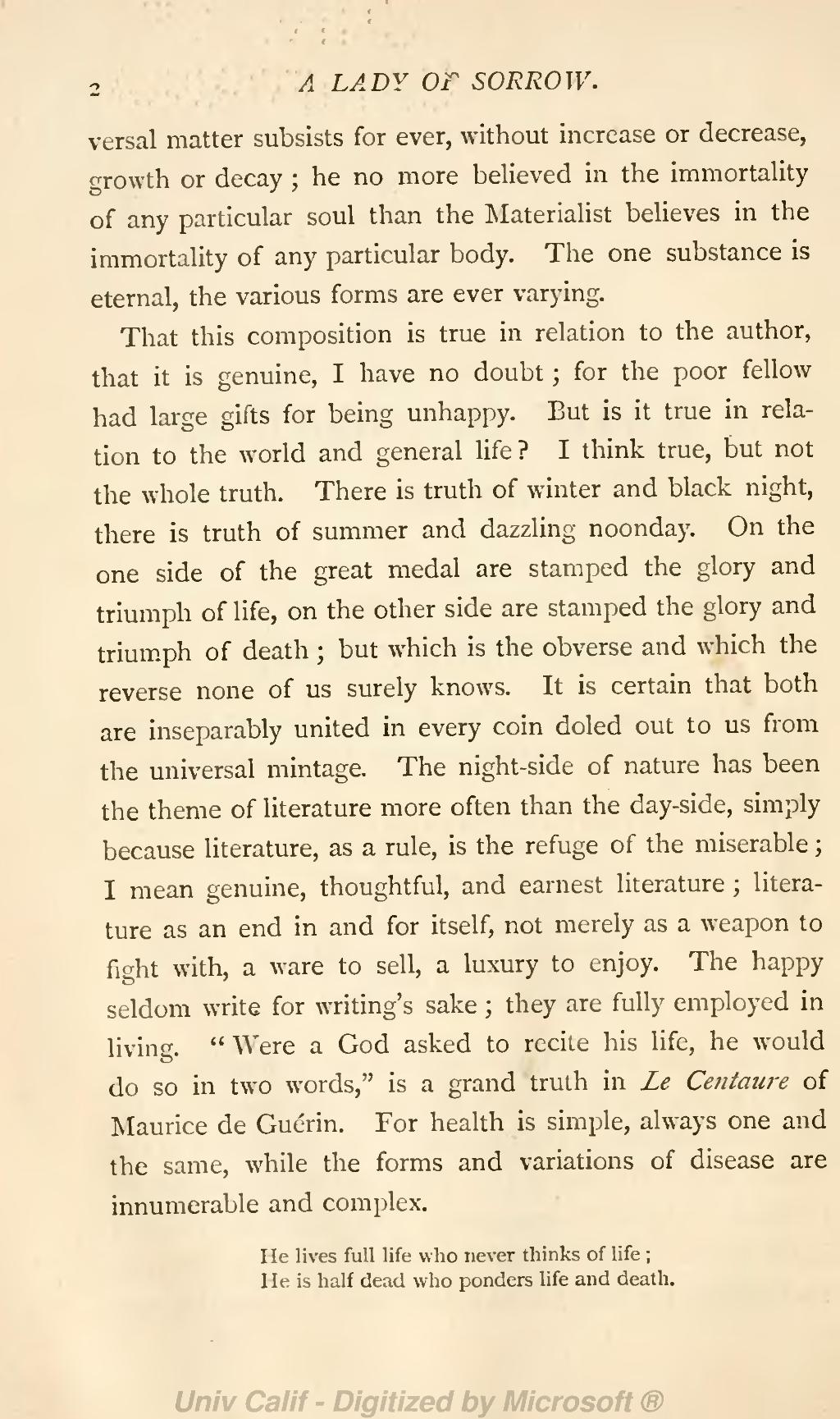versal matter subsists for ever, without increase or decrease, growth or decay; he no more believed in the immortality of any particular soul than the Materialist believes in the immortality of any particular body. The one substance is eternal, the various forms are ever varying.
That this composition is true in relation to the author, that it is genuine, I have no doubt; for the poor fellow had large gifts for being unhappy. But is it true in relation to the world and general life? I think true, but not the whole truth. There is truth of winter and black night, there is truth of summer and dazzling noonday. On the one side of the great medal are stamped the glory and triumph of life, on the other side are stamped the glory and triumph of death; but which is the obverse and which the reverse none of us surely knows. It is certain that both are inseparably united in every coin doled out to us from the universal mintage. The night-side of nature has been the theme of literature more often than the day-side, simply because literature, as a rule, is the refuge of the miserable; I mean genuine, thoughtful, and earnest literature; literature as an end in and for itself, not merely as a weapon to fight with, a ware to sell, a luxury to enjoy. The happy seldom write for writing's sake; they are fully employed in living. "Were a God asked to recite his life, he would do so in two words," is a grand truth in Le Centaure of Maurice de Guérin. For health is simple, always one and the same, while the forms and variations of disease are innumerable and complex.
He lives full life who never thinks of life;
He is half dead who ponders life and death.

